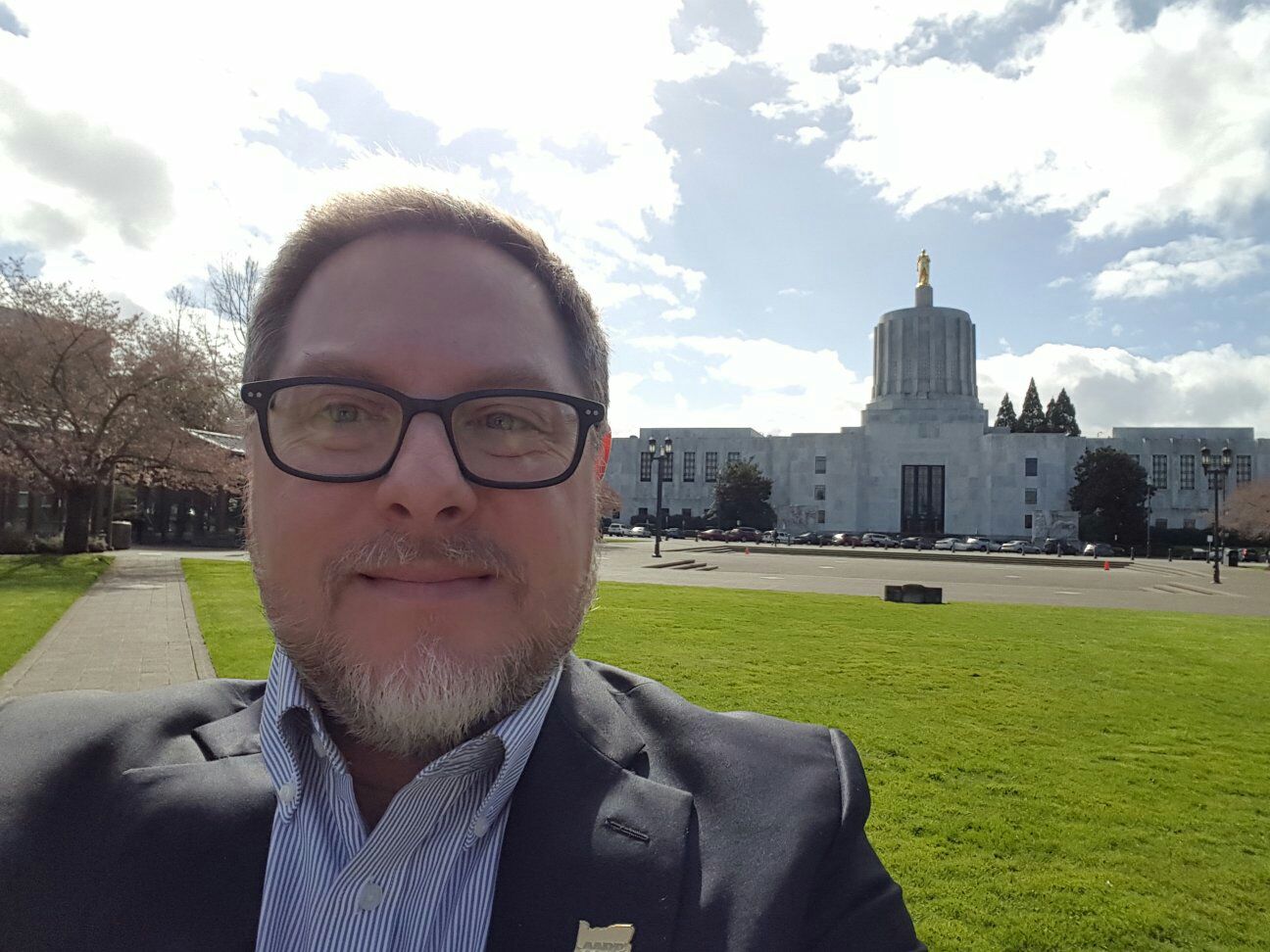AARP Hearing Center

By Jon Bartholomew, Government Relations Director
The 2016 Oregon legislative session is now over. At about 1:08 pm Thursday, they adjourned. There has been a lot in the press about the rancor and frustration among legislators this session. Many bills that probably would have passed in a normal year instead died in committee due to the tension among legislators. This includes legislation AARP supported to update and modernize Oregon’s Advance Directives form. This article from the Oregonian covers the acrimony pretty well
While it’s true there was an increased amount of partisanship and hostility in the Oregon legislature compared to previous years, they ended on some high notes of bipartisanship. Legislators rallied around their colleague Rep. Vic Gilliam who is dealing with a likely diagnosis of ALS In his honor, the legislature, led by Rep. Tobias Read , included in the budget a $100,000 appropriation to go to the ALS research center at OHSU to endow a research assistant to help study this devastating disease. Find out more about the research program at OHSU here.
In addition, a bipartisan package of bills to help address the affordable housing crisis in Oregon also passed. AARP Oregon was active on two of the four proposals.
SB 1533 removes the existing ban on local communities using a tool called “Inclusionary Zoning” to try to encourage more affordable housing. The Oregonian covered the issue well here. AARP testified multiple times on this proposal, and we are very glad to see it passed.
HB 4143 provides more protections for renters from sudden rent increases. It requires 90 day notice of rent increases for month to month renters, and prohibits rent increases in the first year of a month to month tenancy. For people with mobility issues and on fixed incomes, finding a new place to live is extremely difficult, and it helps them greatly to provide a little more time to find a new place to live if they can’t afford the rent increase. AARP also testified several times on this proposal, and you can read more about it.
We would like to thank Speaker Tina Kotek, Sen. Michael Dembrow, and Rep. Alissa Keny-Guyer in particular for their leadership on this package of affordable housing proposals. And we thank the bipartisan group of legislators and all the advocates who worked hard to find a way to make a difference this session.
One of the key roles of the 2016 session was to make budget adjustments. AARP Oregon went in to the session with three priorities for the budget, and two of them were victorious.
The biggest victory was in closing the hole in the DHS Aging and People with Disabilities budget. This agency, which provides long term supports and services for low income Oregonians went into the session about $30 million in the red. If that hole wasn’t filled, it would mean a significant reduction in services for Oregon’s most vulnerable. AARP, along with our allies in the Campaign for Oregon’s Seniors and People with Disabilities, worked with the agency and budget decision makers to ensure no cuts would happen. And that is exactly what has happened. However, the legislature has also ordered DHS to work with stakeholders, which includes AARP, to come up with some specific recommendations to bend the cost curve of the DHS budget. We will be actively involved in this process to ensure we have a sustainable system that ensures people receive the care they need and are afforded the principles of independence, choice, and dignity.
Another budget victory was the inclusion of funding for the Attorney General to set up an office of the Elder Abuse Resource Prosecutor. Elder abuse is notoriously difficult to prosecute because of family dynamics, dementia, and other factors. Local district attorneys often don’t have the expertise or resources to prosecute these cases effectively. This funding sets up an office in the Department of Justice that will provide expertise and assistance to the local DA’s so they can be more effective in fighting elder abuse.
The one disappointment was that the legislature failed to restore funding to the statewide Gatekeeper Program. This program empowers community members to know what to look for if someone might need help, and who to report it to. It prevents elder abuse, it prevents the need for emergency services, and it ultimately saves the state money by helping people before they get into a crisis situation. This is a fantastic program, and we hope that in 2017 there will be funds available to restore it.
After all was said and done – well, more was said than done! But all jokes aside, AARP had a good session for moving our issues forward. If you are curious about what AARP’s positions are on a multitude of issues, you can visit our policy book to get all the details.
Finally, I want to say a few thank yous to people who made this session a success. First and foremost are all of you who contacted your legislators, visited the capitol, wrote letters to the editor, or otherwise weighed in as constituents of your elected officials! You are the true power of AARP, and your voice makes a huge difference! Also, thank you to the great colleagues we got to work with on housing issues, advance directives, familial status non-discrimination, and the budget. All of these efforts are collaborations and it requires open dialogue and everyone providing what they can. And finally one huge shout out to Hannah Love, who has been serving as the staff for the Campaign for Oregon’s Seniors and People with Disabilities. Hannah is moving on to a new position, and we wish her the best! You have been fantastic to work with, and I feel lucky to have had the opportunity to work closely with you. Cheers!
[Photo: Jon Bartholomew]































































